Discover the potential of PPC advertising in increasing your online presence and income. Learn how to maximise the performance of your PPC campaigns with effective keyword research, attractive ad text, and landing page optimisation.
For optimum ROI, select the proper platform and monitor performance KPIs. Avoid typical blunders and investigate the future of PPC advertising. Unlock the power of PPC today and reach your marketing objectives.
Introduction
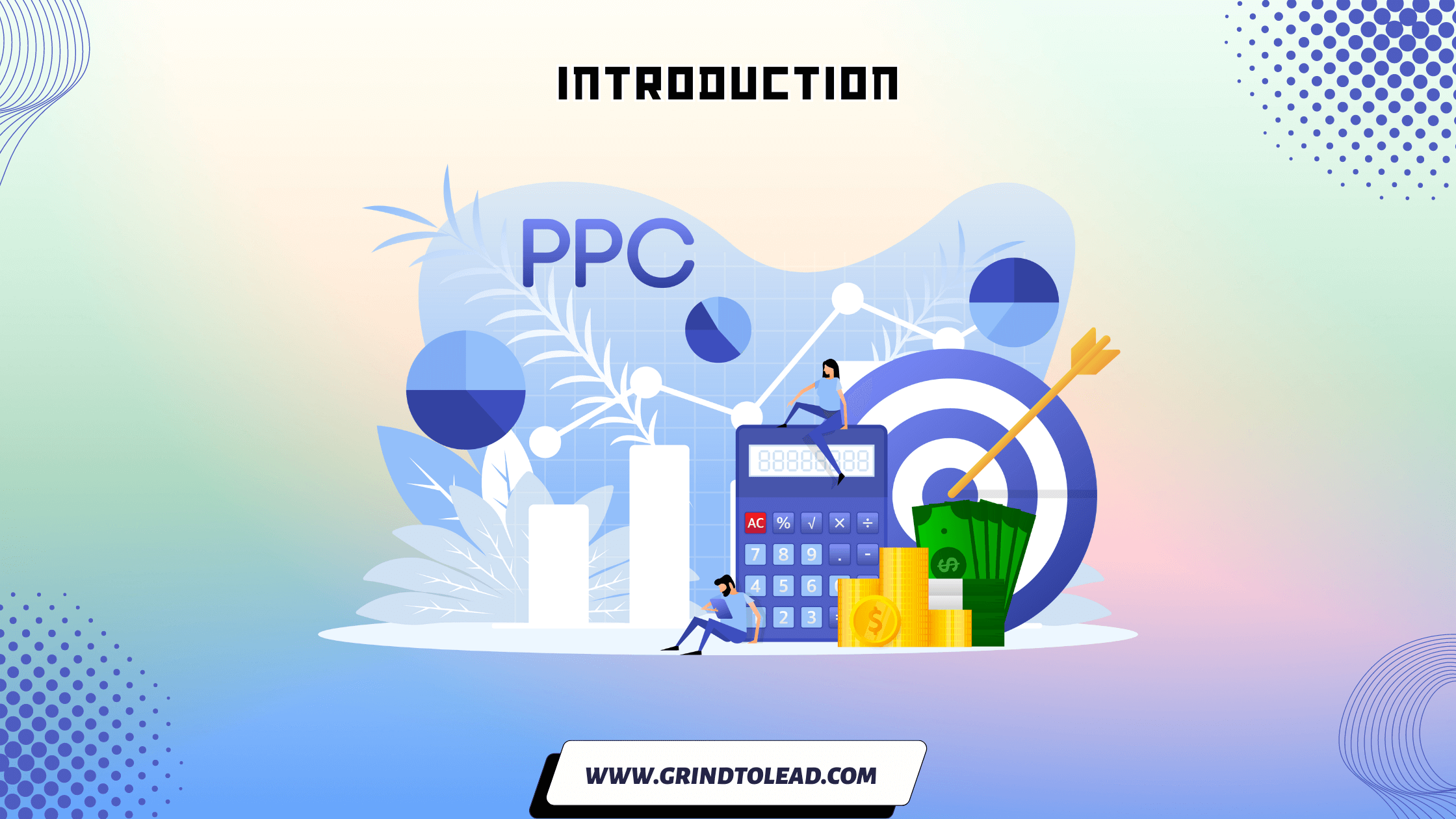
Online advertising has become an essential component of any effective marketing plan in today’s digital world. Pay-Per-Click (PPC) advertising has evolved as a very successful tool for businesses to boost their online presence, create targeted visitors, and earn significant cash among the different advertising options available. In this blog article, we’ll look at PPC advertising, its advantages, and how to optimise PPC campaigns for optimal performance.
What is PPC Advertising?
PPC advertising is a type of internet advertising in which marketers pay a fee each time their advertisements are clicked. It is an effective method of reaching a specific target audience by placing advertisements on search engine results pages (SERPs) or other related websites. Advertisers bid on certain keywords or demographics of their target audience to have their advertisements displayed when users search for or express interest in relevant subjects or items.
Advantages of PPC Advertising :
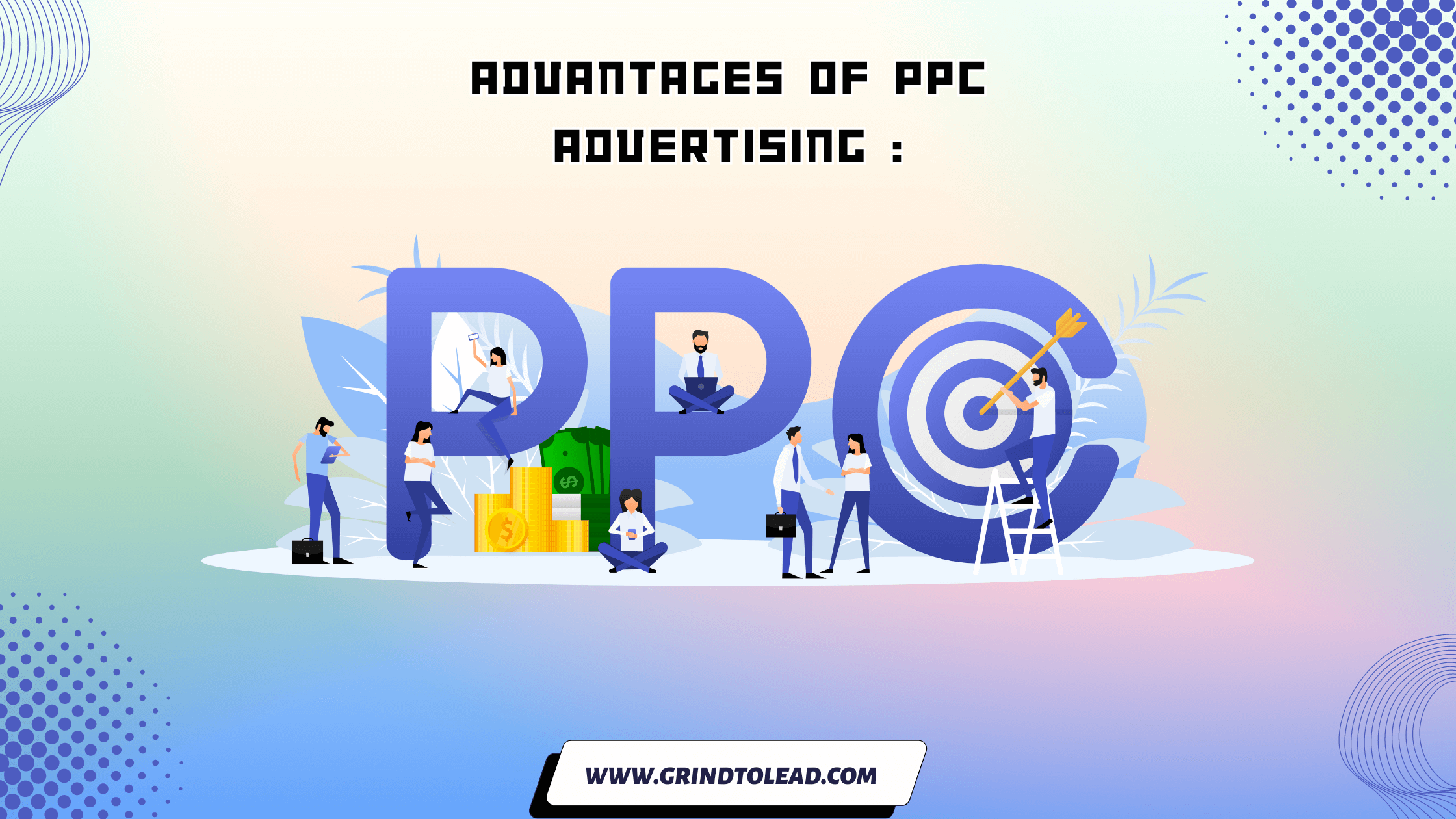
PPC advertising has various advantages over other types of advertising. For starters, it delivers instant exposure and outcomes. PPC advertisements show at the top of search engine listings nearly instantly, unlike organic search engine optimisation (SEO), which takes time to rank higher in search results.
Second, PPC ads are extremely targeted, allowing businesses to reach out to their ideal clients based on demographics, geography, hobbies, and other factors. Furthermore, because marketers only pay when consumers click on their advertisements, PPC enables for accurate budget management.
This low-cost strategy guarantees that marketing expenditures are focused on consumers who are engaged and interested.
Key Elements of a Successful PPC Campaign
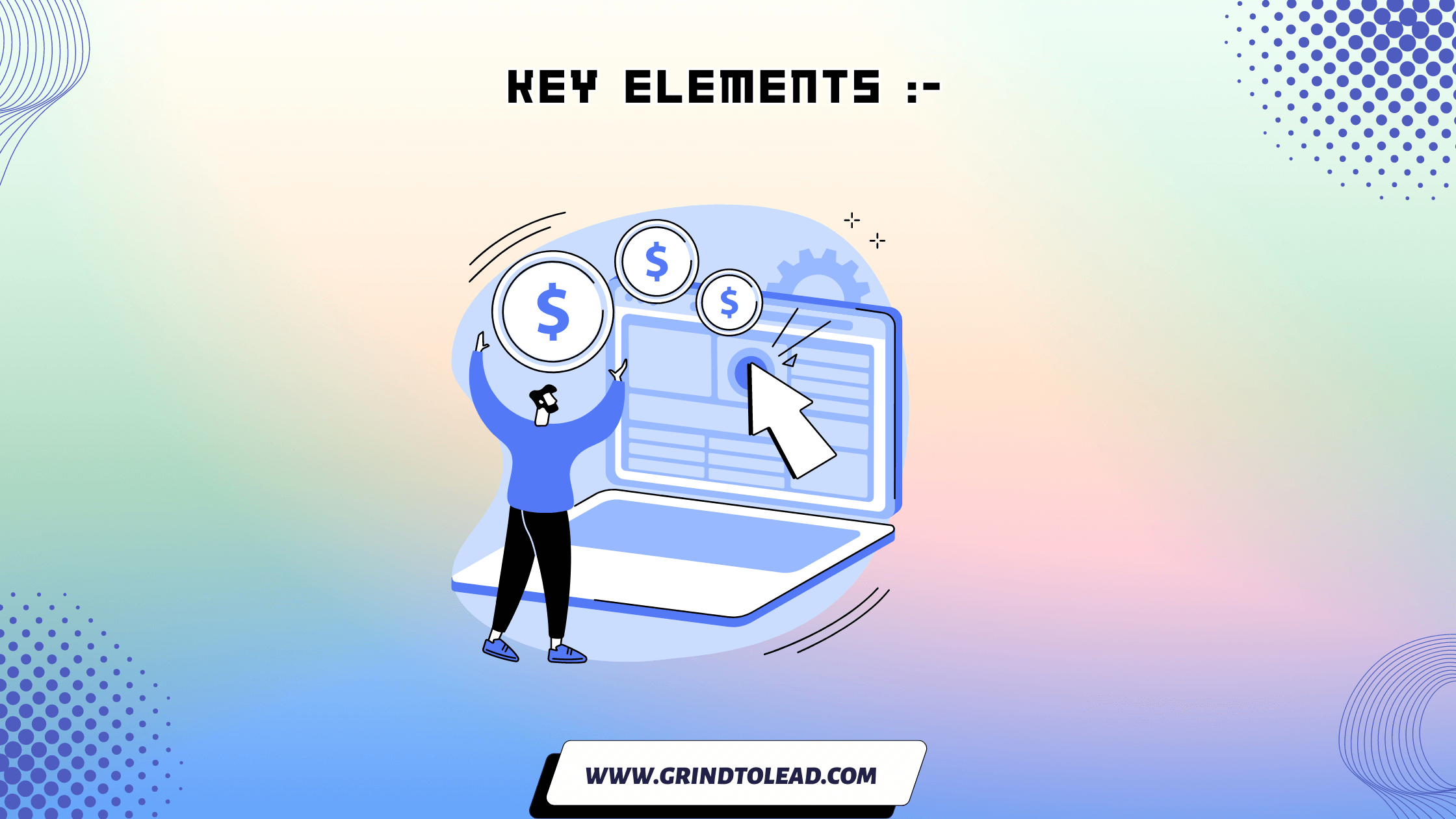
Several critical things must be addressed when developing a good PPC campaign. First and foremost, significant keyword research is required to determine the most relevant and high-performing terms for your company.
These keywords will serve as the cornerstone of your PPC campaign and will have an influence on its overall performance. Additionally, effective ad language and eye-catching ad creatives are critical in attracting user attention and driving clicks.
Furthermore, optimising landing pages for conversions and maintaining a seamless user experience are critical for maximising your PPC campaign’s return on investment (ROI). Finally, choosing campaign parameters such as budget, ad timing, and targeting choices will allow you to reach the correct audience at the right time.
Choosing the Right PPC Platform
Several platforms provide comprehensive capabilities and diversified audiences for PPC advertising. Google Ads is the most popular platform, with millions of people accessible via its search network and display network. Another popular platform, Bing Ads, targets a specific population and might be more cost-effective in some sectors.
Social media networks like Facebook, Instagram, Twitter, and LinkedIn also provide strong advertising options that enable businesses to target particular demographics and exploit user behaviour data.
Tracking and Analytics
Tracking and analytics solutions are vital for measuring the efficacy of your PPC ads and making data-driven choices. Conversion tracking allows you to follow the activities that consumers do after clicking on your adverts, such as purchasing or filling out a form. Conversion monitoring allows you to see which keywords and advertisements are generating the most conversions and change your strategy appropriately.
Monitoring performance measures like as click-through rate (CTR), cost per click (CPC), and return on ad spend (ROAS) gives useful insights into campaign effectiveness and aids in budget allocation optimisation.
Optimizing Your PPC Campaigns
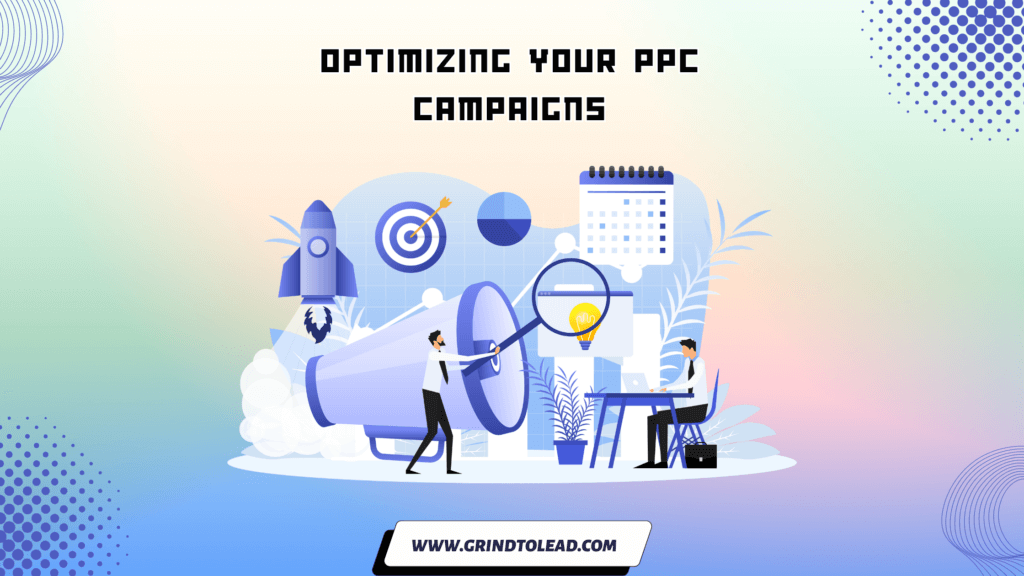
Constant optimisation is essential for increasing the performance of your PPC ads. Begin by completing frequent keyword research to uncover new keywords, eliminate underperforming ones, and fine-tune your targeting.
You may find the most successful versions and optimise campaign performance by A/B testing your ad wording, landing page components, and call-to-action buttons. Bid management guarantees that you bid competitively while remaining within your budget.
Improved Quality Score, a statistic used by search engines to evaluate ad rank and cost per click, can also lead to higher ad placements at reduced prices.
Common PPC Advertising Mistakes to Avoid
While PPC advertising has enormous potential, there are several frequent blunders that advertisers should avoid. These include bad keyword selection, ignoring ad relevance, failing to optimise landing sites, failing to properly use negative keywords, and failing to set up suitable tracking and analytics. You may maximise the performance of your PPC advertising and prevent squandering critical money by recognising and avoiding these traps.
The Future of PPC Advertising
As technology advances, the future of PPC advertising is bright. Machine learning and artificial intelligence advancements are transforming the market, enabling more accurate targeting, automated bidding techniques, and greater ad personalisation. As more people rely on voice assistants and mobile devices for their search queries, voice search and mobile advertising are projected to play a big part in the future of PPC.
Is PPC advertising suitable for small businesses?
PPC advertising may, in fact, be advantageous for small firms. By focusing on certain niches and successfully attracting their target audience, it enables them to compete with more established rivals.
Small companies may use PPC advertising to produce excellent outcomes and maximise their return on investment (ROI) with careful planning, budget control, and optimisation.
What are some common mistakes to avoid in PPC advertising?
Poor keyword selection, inappropriate ad wording, ignoring landing page optimisation, improperly implementing tracking and analytics, and failing to routinely optimise and test campaigns are all examples of common PPC advertising errors. Better campaign performance may be achieved by avoiding these blunders and continuously enhancing your strategy.
Conclusion
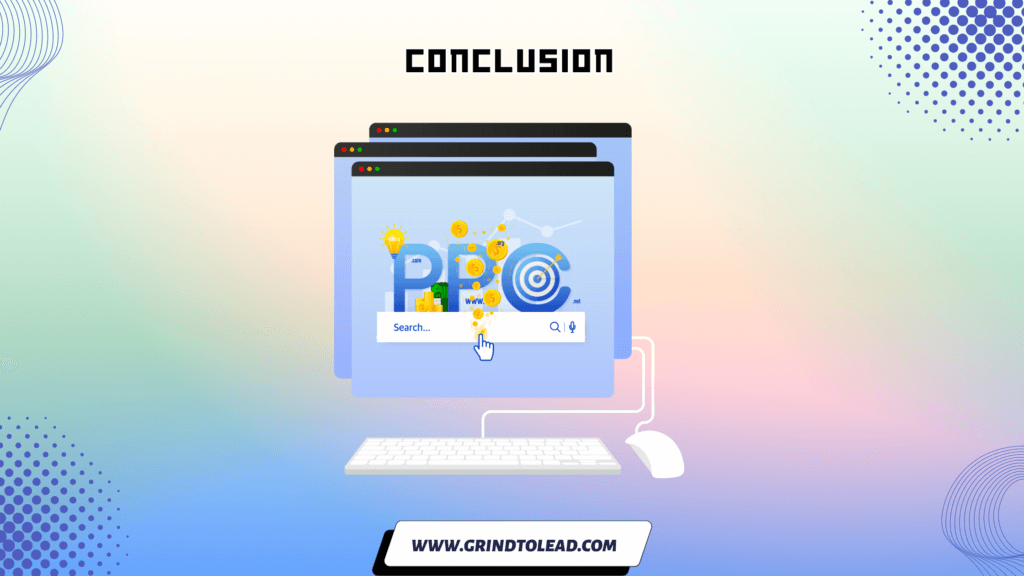
PPC advertising is a strong and efficient tool for businesses to boost their online presence, deliver targeted visitors, and earn income.
You can unlock the full potential of PPC advertising by understanding the main parts of a successful PPC campaign, selecting the correct platform, utilising tracking and analytics, and continually optimising your campaigns. To keep ahead of the competition and maintain the long-term success of your PPC ads, stay up to date on industry trends and innovations.
To summarise, pay-per-click advertising is a great tool that enables organisations to reach their target audience, generate conversions, and fulfil their marketing objectives. Businesses may improve their online exposure, generate income, and stay ahead of the competition by utilising the benefits of PPC and executing successful tactics.
